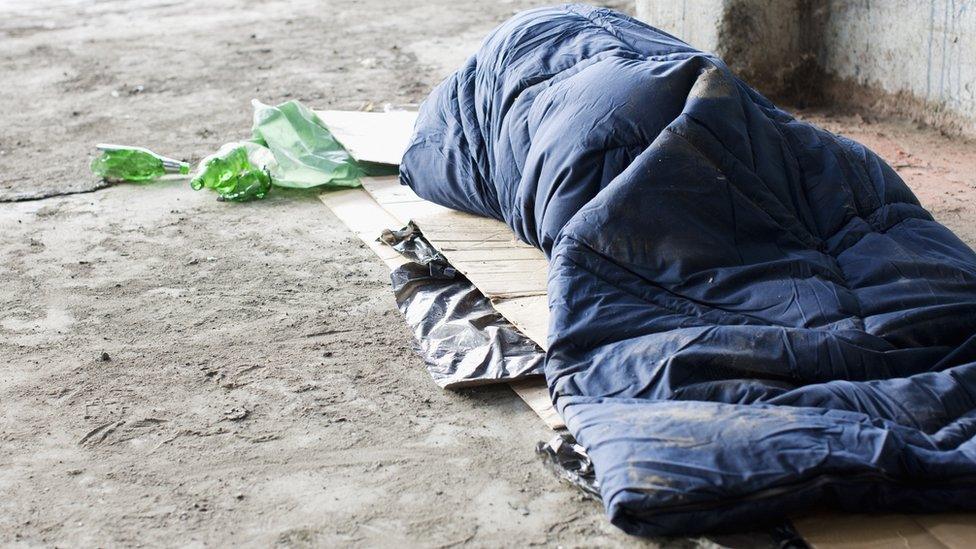Rough sleeping: 'New Year reminds me what my life has become'
- Published
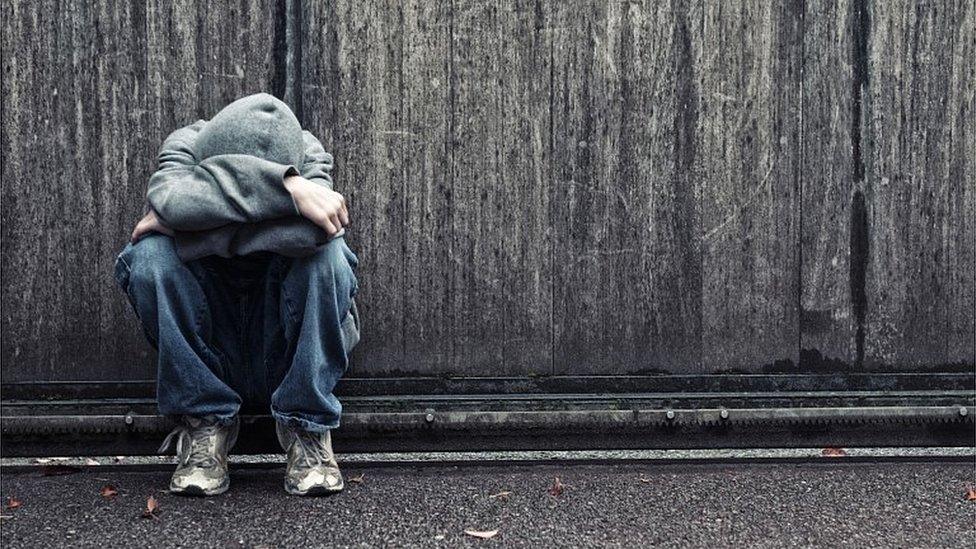
Mark said verbal and physical attacks were normalised by rough sleepers and just added to "that broken feeling inside"
For Mark, who has been homeless for most of his adult life, the festive period has always been difficult to deal with.
He said watching people celebrating was a stark reminder that "my life's come to this" and one of the many "jolts of reality" he has experienced during life on the street.
And New Year's Eve in particular can be a very low point.
"A few Christmases back now... it was New Year's Eve in Preston," he said.
"You're sat there watching people celebrate the New Year coming and I'm sat there begging for money.
"And I wonder 'why can't I be like these people? What's wrong with me?'"
Mark, who asked not to give his full name, has slept in doorways, sofa-surfed and stayed in hostels in Lancashire since he was 16 and admits that "drugs led me to homelessness really, if we strip it right back".
However, he is now using his experiences to help people in Blackburn who are in a similar position.
'That broken feeling'
Government figures show that between 2017 and 2018, the number of rough sleepers in Blackburn with Darwen increased from 2 to 15, before peaking a year later at 21.
While that number was relatively low when compared to the nearby cities of Manchester and Liverpool, the latest survey, taken in Autumn 2020, showed 18 people were still sleeping rough in the area.
The issue has seen ten government-funded pods, described as a "stepping stone towards independent living", installed in Blackburn by the local council until the end of March 2022.
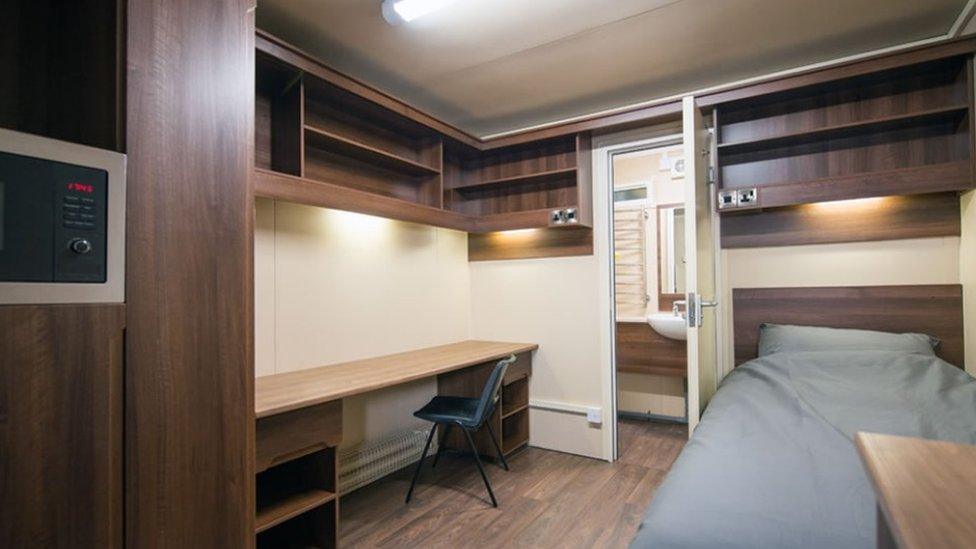
The Blackburn pods have a bed, toilet, shower, key-coded door and on-site security
Mark told BBC Radio Lancashire statistics do not tell much of the story of what those people are experiencing.
He said he had been spat at by a group of teenagers in the past, who also "did various other things", but that such "frightening" moments become normalised for rough sleepers.
"It's that broken feeling inside," he said.
"It's not pleasant.
"It probably exacerbates it and makes you continue doing what you are doing."
He said when you are homeless, "you don't feel part of society", adding that such thoughts snowballed into a feeling that you do not "deserve to be part of society."
He said he had had many moments when he realised he "couldn't live that way any more".
'Much brighter'
He has been helped by the Thomas organisation, a Blackburn charity which aims to take people "through detox and residential rehabilitation into community-based provision".
The charity's Howard O'Neill said substance abuse was a "recurring theme" for rough sleepers, but added that homelessness "can literally happen to anybody".
"Anybody can find themselves in a situation, through drugs, alcohol or the break-up of a marriage," he said.
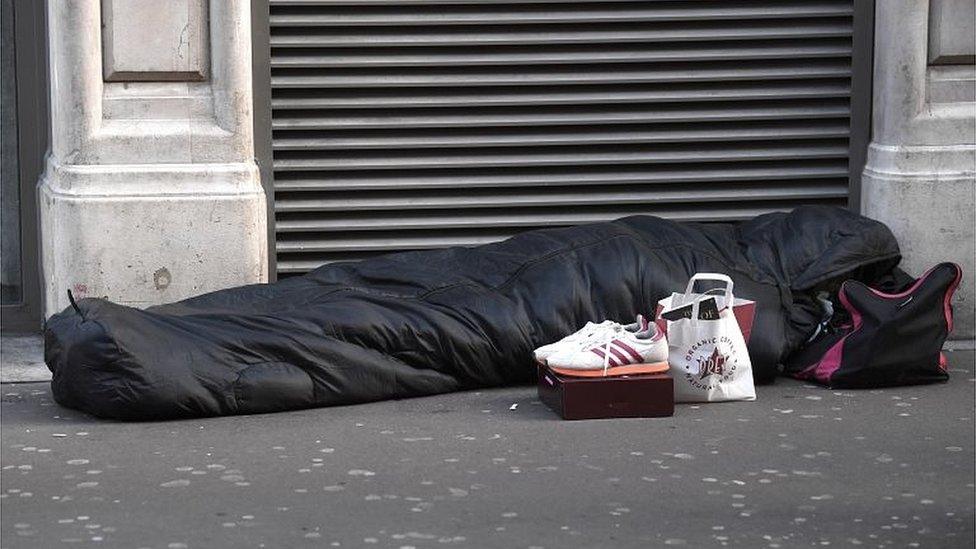
The latest government survey, taken in Autumn 2020, showed 18 people were sleeping rough in the Blackburn with Darwen area
Mark is currently in a rehabilitation centre, but is also helping people like him by volunteering at hostels and speaking out.
He said his outlook was now "much brighter" and he felt "quite optimistic" for the future.
"[I go in] and tell my story," he said.
"I've been where you are at. I know what it's like to be sat in these places.
"In hostels with filthy mattresses or dirty carpets or waking up behind the cinema... and there were no drugs there to take and you thought 'this is my life'.
"People tend to listen more when they know you've lived it."

Why not follow BBC North West on Facebook, external, Twitter, external and Instagram, external? You can also send story ideas to northwest.newsonline@bbc.co.uk
Related topics
- Published9 December 2021
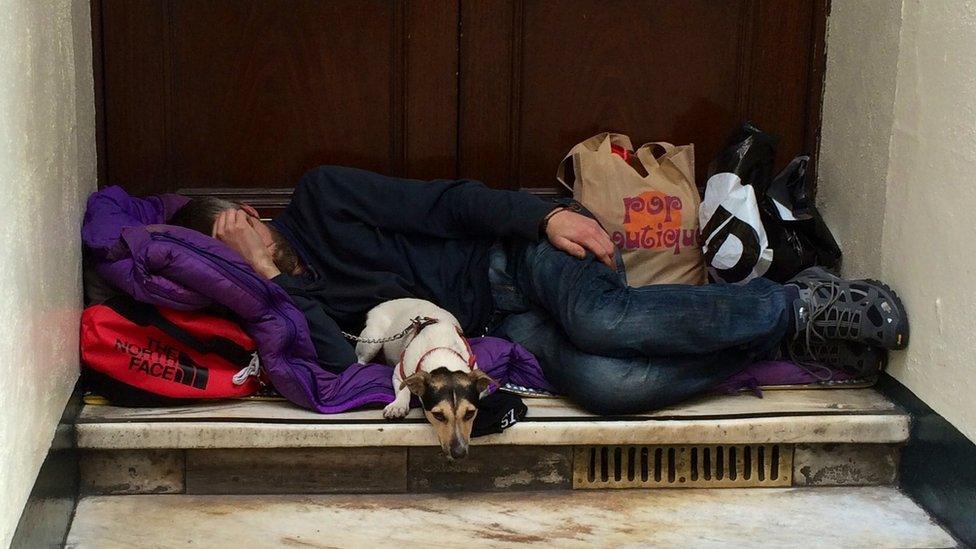
- Published1 July 2020
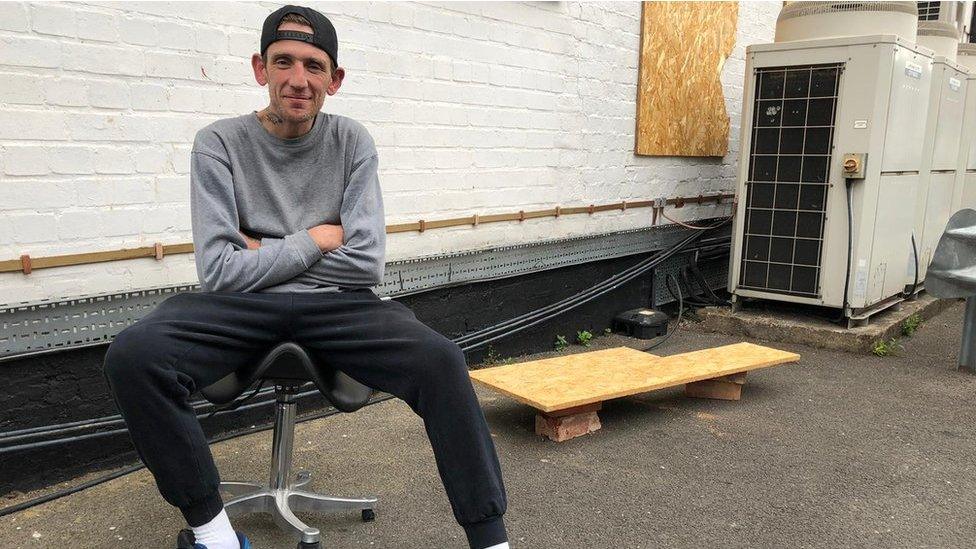
- Published17 March 2021
